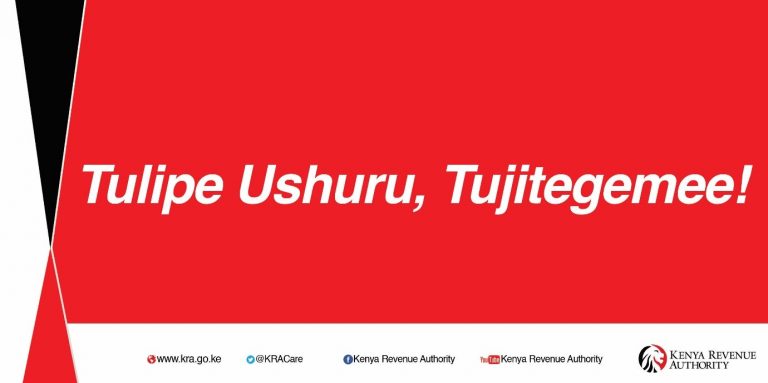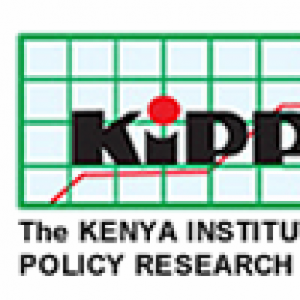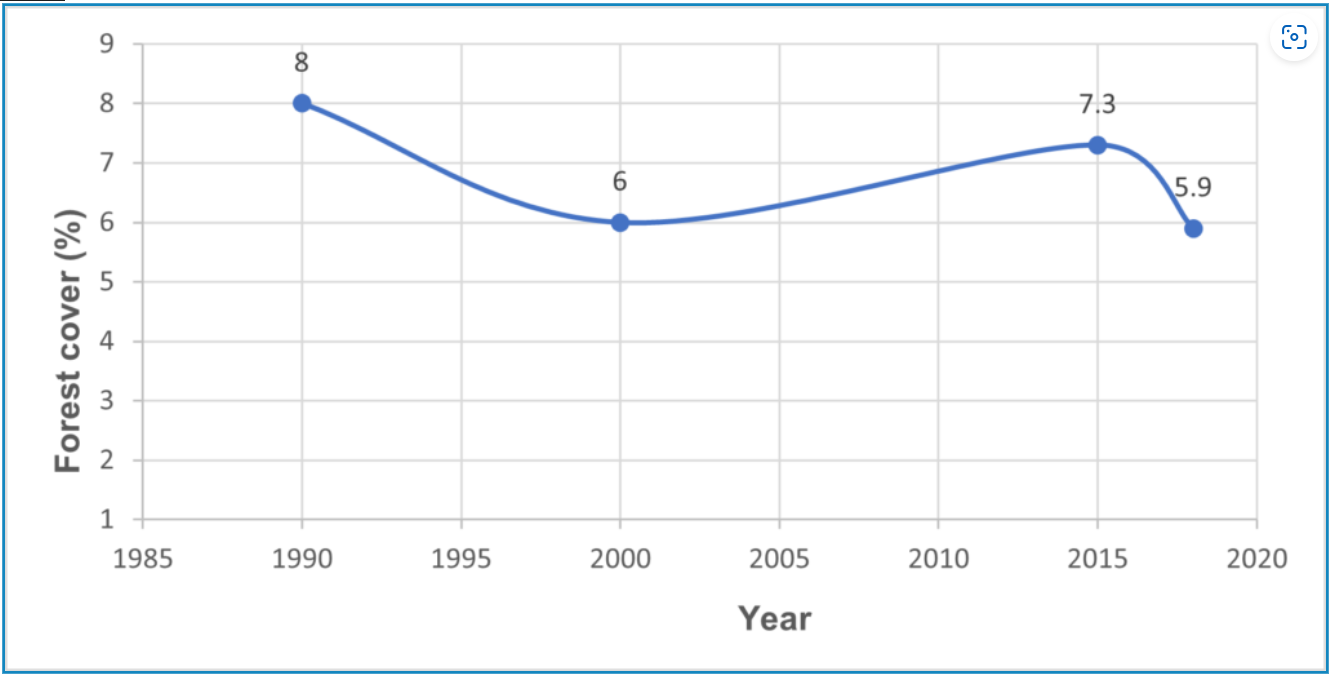The Finance Act 2020 amendments to the income tax Act were effected and minimum taxes introduced payable at one per cent of gross turnover effective January 2021. The objective is to ensure that all taxpayers pay at least one per cent of their gross turnover as tax from their business each year, whether or not they make profit. The minimum tax targets all business enterprises regardless of their annual gross turnover, with exemption only to businesses whose income is subject to Turnover Tax (ToT), those whose retail price is controlled by the government, and persons engaged in insurance business. All other businesses will have to pay the minimum tax of one per cent of their gross turnover with effect from 1st January 2021, which will be payable on 20th of the 4th, 6th, 9th and 12th month in a year.
Notably, the introduction of minimum tax did not replace the existing Turnover Tax (ToT), which was introduced on 01/01/2020. Currently, the ToT is payable at one per cent of monthly gross turnover and remitted to the Kenya Revenue Authority on the 20th day of the month following the taxation period. This applies to all business enterprises with an annual turnover of more than Ksh 1,000,000 but less than Ksh 50,000,000 in any given year.
The need to tax the MSMEs is critical for establishing tax equity, with the informal sector carrying its fair share of fiscal burden as the Government increases its revenue collection base to meet its growing demand for public services. However, the introduction of minimum tax becomes an additional regulatory focus area for MSME’s considering that some of the businesses in the sectors such as wholesale and retail are currently regulated by the two levels of Government atop other regulatory agencies across the country.
Further, the payment of minimum tax will not exempt the MSMEs from paying other tax obligations such as licensing fees and trading permits, including County Governments levies and other fees that may be introduced from time to time and may vary across the different counties, making the minimum tax arguably burdensome, an impediment to the growth of MSEs and increasing the cost of doing business.
Taking lessons from challenges encountered in the administration and enforcement of ToT, such as inadequate and unclear strategies for monitoring the collection of turnover tax especially among the informal MSMES, it is likely that these challenges might recur in the administration of the minimum tax in the sector. Worth noting is that from the Kenya retailer’s association, the country has inadequate, accurate, reliable data on businesses that operates in the sector. Consequently, this might pose a challenge in the administration and collection of the minimum tax as statistics indicate that only about 2 per cent of MSMEs pay taxes. This creates a need to ascertain how to increase the tax compliance rate of MSMES, otherwise the status quo may prevail in administration of minimum tax, thereby negating the intended objective.
Further, administering the minimum tax without enforcement policies in place to nudge the huge MSMEs sector towards transparency and accountability for tax payment will only result to unevenness of tax application since it will be dependent on the MSMEs willingness to declare their gross turnover. To remedy the foregoing, there exists a need to develop a policy that will support and fully encourage operationalisation of a self-regulation mechanism, which will facilitate proper management of the sector including on membership, and data collection to enhance minimum tax compliance in the sector.
Taxing the MSMEs may also result to unintended economic effects in respect of businesses profits performance especially when deducted from the gross revenue of the business. Having the minimum tax deducted from the total revenue before deducting the total cost makes it an additional cost rather than a tax on actual earned income by the business. According to statistics from retail trade association of Kenya, MSMEs make a margin of about 18 per cent of the gross margin meaning that 80 per cent of the estimates go back to the supplier.
Considering that MSMEs generate about 3-5 per cent net profits margins, yet they still need to meet the operational costs, imposition of minimum taxes will impact the growth and survival of MSMES. As a result of the low margins and especially on the new firms in the sector, which would be unprofitable in the initial years of businesses, there might be no profits left after deducting the minimum tax and factoring mandatory business financial obligations such as repayments of loans, salaries, electricity, and other overheads incurred in running the business.
As a result of the low margins and heavy financial obligations burden, several MSMEs which include retail supermarkets are struggling to remain afloat. Many Kenyans have been rendered jobless and suppliers, including lenders, have lost their money. The inability of the sector to settle its financial obligations has seen the downfall of Nakumatt and Uchumi supermarkets, with other foreign retail in the country such a Shoprite and Choppies also on the verge of collapse in Kenya. Tuskys supermarket is also struggling on account of delayed payments to suppliers and workers; a further indication that the sector requires government intervention and policy direction.
In a country such as Bulgaria, the company income tax law 2007 provides that MSMEs whose net sales in a year is less than US$ 180.971 are not supposed to contribute to minimum or make any advanced tax payments but are only required to maintain a simplified accounting standard. In addition, the Nigeria Finance Act 2020 tax exempts small enterprises with turnover less than US$ 65,582 from paying minimum tax. Also in South Africa, small business corporations with gross income of not more than US$ 5687.99 are taxed at zero per cent.
Such tax palliative arrangements are laudable and act as best practice, encouraging growth of early-stage startup firms and MSMEs. Such tax regimes which are supportive of the MSMEs enable firms to redirect revenue saved back to their businesses. Considering there are approximately 7.41 million MSMEs in Kenya, which contribute approximately 98 per cent of all businesses in Kenya with about 14.9 million engaged persons in the sector, it is likely that the minimum tax will have an impact on economic growth.
While effecting the minimum tax, there is need to support the MSMEs trade performance post COVID-19. There is need to ascertain the efficiency of the minimum tax administration and determine how effectively it can be implemented without adversely affecting the expansion and growth of the sector. This implies that as a policy maker and regulator, the Government needs to consider ways in which the minimum taxes can be imposed without adversely affecting the narrow fiscal space of MSMEs due to the effect of COVID-19.
Even so, there still exists the universal view that tax is an essential source of revenue for growth of the economy and delivery of social services. Nevertheless, the challenge with administration of the proposed minimum tax lies in the ability of traders to get business sufficient to meet tax obligations (pay), sustain their businesses and expand considering that some firms such as wholesale and retailers in the sector are faced with multiple taxation, including the county levies and charges which vary across the counties and significantly consume revenues generated by these firms that could otherwise be utilized for expansion.
To improve on ease of doing business in the country, the World Bank Ease of Doing Business report of 2020 recommends having flexible regulatory reforms. Flexible taxation regime may result to significant outcomes in terms of growth of firms and employment creation, but effecting the minimum tax on the gross turnover regardless that the firms makes profit or not tightens the MSMEs regulatory environment in the country and does not improve the ease of doing business as per the World Bank report.
That notwithstanding, the intervention measures by the Government to cushion business from effects of COVID-19 such as reduction of VAT, PAYE, availed further resources to the firms. Most of the MSMEs are one-man firm who earned Ksh 24,000 per month and below and therefore benefited from the tax relief for the below Ksh 24,000. Payment of pending bills owed to suppliers and VAT refunds boosted the sectors as the Central Bank of Kenya increased bank liquidity to allow for flexibility rescheduling of loans which helped the sector to remain afloat. These measures have been very expensive for the government, but the economic and policy consensus is that the alternative, which is closure of the businesses and loss of jobs would trigger serious economic collapse from which it would take decades to recover. Supporting businesses survival has thus proved plausible.
With the implementation of minimum tax, the issue of inter-county fees, advertisement fees and charges imposed when moving goods from one county to another needs to be addressed and harmonized through policy to avoid double taxation, which constitute trade barriers. To further support the sector and encourage free movement of goods and services, the license fees charged should be channelled towards service provision rather than revenue collection tools.
Before operationalization of the minimum tax for example, stakeholder consultations can be held to discuss whether there is need for tax exemptions especially for the start-ups and the need for administrative guidelines on the operationalization of the minimum tax to address some of the anticipated businesses challenges. Further, delayed implementation might also be considered to allow the MSMEs to recover gradually from the effects of the pandemic. This will not only assist the sector to recover from the adverse effects of the pandemic but also to improve the contribution to GDP and create more jobs as envisioned in the Kenya Vision 2030.
Author: Dr John Karanja, Senior Policy Analyst, Trade & Foreign Policy Department
Photo: Courtesy of Kenya Revenue Authority






